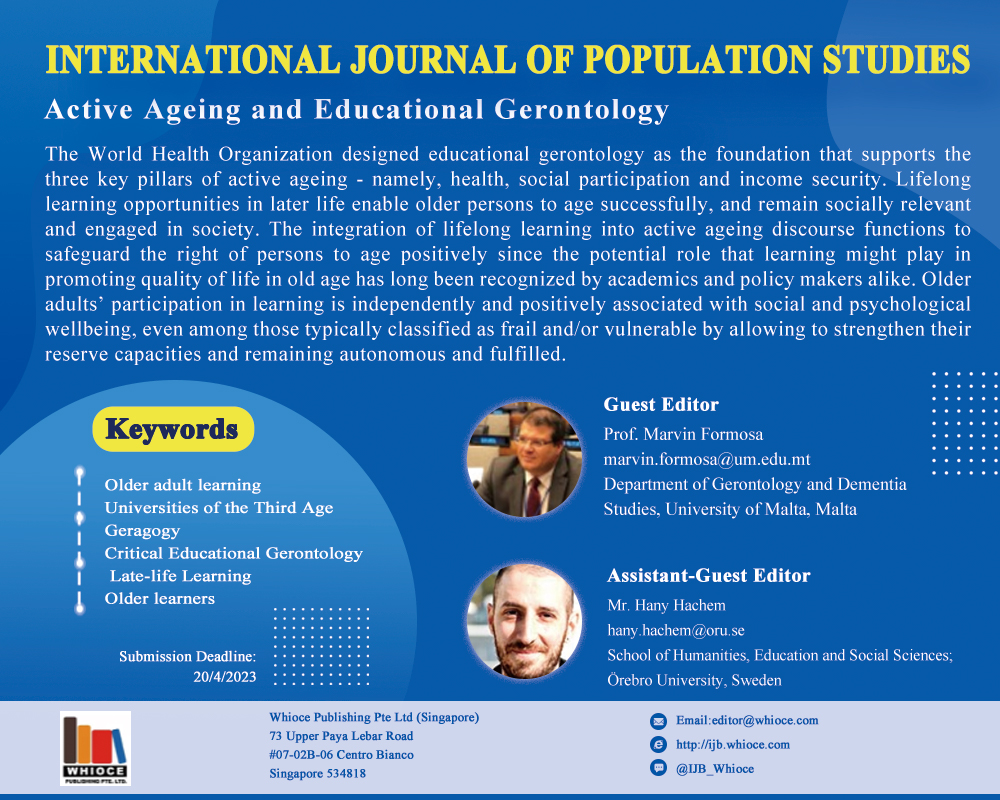
Dear Colleagues
The World Health Organization designed educational gerontology as the foundation that supports the three key pillars of active ageing - namely, health, social participation and income security. Lifelong learning opportunities in later life enable older persons to age successfully, and remain socially relevant and engaged in society. The integration of lifelong learning into active ageing discourse functions to safeguard the right of persons to age positively since the potential role that learning might play in promoting quality of life in old age has long been recognized by academics and policy makers alike. Older adults’ participation in learning is independently and positively associated with social and psychological wellbeing, even among those typically classified as frail and/or vulnerable by allowing to strengthen their reserve capacities and remaining autonomous and fulfilled.
Manuscripts submitted online at http://ijps.accscience.com/index.php/IJPS/login until the first deadline of 31 December 2022 will have their Article Processing Charge waived.
The right to lifelong learning: Addressing policy challenges for late-life learning in Canada
Active aging and alternatives to age-based retirement
Re-conceptualizing music education in the older adult life course: A qualitative meta-synthesis
Barriers to learning at a U3A in Lebanon: A structurationist perspective
Light, activity, and sleep: Design and usability evaluations of a web-based course supporting changes to routines and the home
“It’s like an oak tree growing slowly across a barbed wire fence:” Learning from traumatic experience of bereavement by suicide in later life
Age-friendly cities and lifelong learning
Lifelong learning, well-being, and climate justice activism: Exploring social movement learning among Australia’s Knitting Nannas

